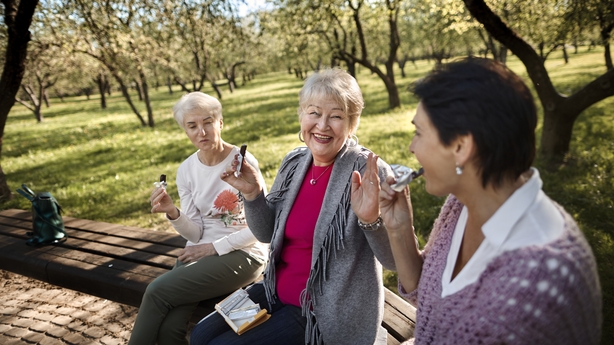As a high street shop release a chocolate bar purporting to help ease menopausal symptoms, Joe Duffy speaks to Dr. Deirdre Lundy, a women's health specialist and the head of Ireland's first public menopause clinic in the National Maternity Hospital, about whether such products can really make a difference. Listen back above.
Health food shop Holland & Barrett has released a new chocolate bar, Menopause Almonds in Dark Chocolate with Benefits, that they claim can help with menopausal symptoms. However, Lundy is unconvinced.
"I love chocolate, and I like almonds, and I wish to Christ they did something for menopause symptoms but there's absolutely no proof that that has any effect on menopause", she told Joe.
"This is marketing at its best."

She noted that there's ever more demand for products that claim to help manage these symptoms: "You put the word 'menopause' on any product and you're going to get an increase of sales amongst a certain cohort of people."
While Holland & Barrett did not send a representative to discuss the bar on Liveline, they sent a statement saying that their bar contains saffron, a "clinically studied extract which helps to support moods during menopause and contains vitamin B6 to help the regulation of hormonal activity".
However, Lundy claims that there is no scientific benefits of taking any of these items for menopause symptoms.
While supplements can be helpful for those who are "chronically deficient" in those vitamins, Lundy said that doctors prefer that patients get their nutrients through food.
"If there was an ounce of proof behind their claim, we would be promoting them ourselves in the medical clinics, but we don't", she added.
"You gotta remember that women have a superpower that if we believe something is going to make us better, we get better. That's called a placebo effect. The problem is it's not sustainable."

Lundy explained that she's eager to find new forms of treatment for her patients, many of whom are at their wits end:
"The majority of my working life now is helping people manage menopausal symptoms who, for the most part, are not allowed go near hormones. So I'm always scratching around for non-HRT ways, and if any of those vitamins or supplements were effective I would be promoting them, but I'm not."
When it comes to nutrients that doctors know menopausal women need to pay more attention to, vitamin D is top of the list.
Calcium is another key nutrient for menopausal women, and Lundy suggests eating calcium-rich food like fortified milks, or a calcium supplement of any kind.
Listen back to the full interview above.

